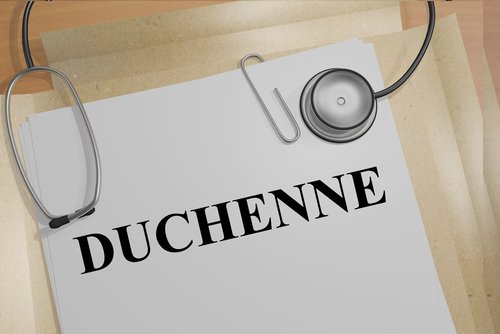Request to Approve Viltolarsen, Exon 53 Skipping Treatment for Duchenne MD, Before FDA
Written by |

Nippon Shinyaku filed a request for the approval of viltolarsen (NS-065/NCNP-01) to treat Duchenne muscular dystrophy amenable to exon 53 skipping with the U.S. Food and Drug Administration (FDA), the company announced in a press release.
The request came in the form of a rolling new drug application (NDA) whose FDA submission began at the start of this year, Parent Project Muscular Dystrophy (PPMD) reported in February.
Duchenne muscular dystrophy is caused by mutations in the dystrophin gene, which can lead to a complete loss of protein function.
Exon skipping approaches aim to restore adequate levels of dystrophin, a protein essential to the structural integrity of muscle cells during contractions. The therapy is intended to lead to the production of a partly functional dystrophin protein.
Viltolarsen (NS-065/NCNP-01), developed based on exon skipping technology, is an antisense oliogonucleotide that targets exon 53 in the dystrophin gene. (An exon is the portion of a gene that codes for amino acids, the building blocks of proteins.) Currently, steroids are the most effective treatments for DMD patients amenable to exon 53 skipping.
NS Pharma completed a Phase 2 study in North America, and its parent company, Nippon Shinyaku completed a Phase 1/2 study in Japan. Both companies will work with the FDA in its review of their application for this potential DMD therapy.
The Phase 2 trial (NCT02740972) in the U.S. and Canada assessed viltolarsen, administered as intravenous infusion once weekly for six months, against placebo in eight ambulatory DMD boys, ages 4-10, with a mutation amenable to exon 53 skipping. Viltolarsen was found to restore dystrophin in the patients’ muscles after 20 to 24 weeks of weekly infusions (at doses of 40 mg/kg or 80 mg/kg), indicating production of dystrophin. Treatment was also seen to be safe and tolerable, with all adverse events said to be mild or moderate, and none causing a patient to stop treatment.
“There is strong preliminary evidence of clinical benefit, and this is highly supportive that the amount of dystrophin protein induced by Viltolarsen treatment is reasonably likely to result in clinical benefit,” the researchers wrote.
An expected FDA decision date on the approval request was not given.
Nippon Shinyaku and NS Pharma are now enrolling up to 74 ambulant boys in Japan for a randomized, double-blind and placebo-controlled Phase 3 study (NCT04060199) to further assess the efficacy and safety of viltolarsen. Patients will be randomized to once-weekly intravenous infusions of viltolarsen at 80 mg/kg, or to a placebo, for up to 48 weeks.
The boys’ standing, running, walking and climbing abilities, as well as their elbow extension, elbow flexion, knee extension, and knee flexion will be evaluated. Blood samples will be taken periodically throughout the study to learn more about the fate of viltolarsen within the body.
This new study is expected to conclude in late 2024.
Viltolarsen was granted a Rare Pediatric Disease Designation, and Orphan Drug Designation, and Fast Track Designation in the U.S., and a SAKIGAKE designation and orphan drug designation in Japan. An application for its approval to treat DMD patients amendable to exon 53 skipping was filed with Japan’s Ministry of Health, Labour and Welfare in September.





